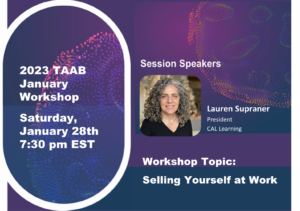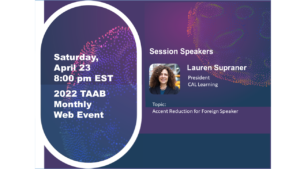In this comprehensive presentation, Heidi shared her valuable experience in the field of regulatory affairs, highlighting her journey at Bristol-Myers Squibb (BMS) and the key aspects that contributed to her successful career. Throughout her time at BMS, Heidi emphasized the importance of teamwork, support, and open-mindedness to foster growth and development, both individually and collectively.
Heidi’s time at BMS included holding several positions and working with various teams, where she learned the significance of diversifying one’s experiences across different therapeutic areas and drug types. This exposed her to biologics, cell and gene therapy, and other emerging fields. Gaining a wide range of experiences allowed her to understand better the common themes and unique considerations for each disease area, ultimately enhancing her marketability and career growth.
Heidi also touched upon her experience working with global regulatory strategies at BMS. She emphasized that understanding the different approaches and cultures of health authorities in various countries is essential. Heidi shared examples of how Health Canada and the US FDA have distinct focuses and methods of analysis, highlighting the importance of flexibility and adaptability when working with diverse regulatory agencies.
As the pharmaceutical industry undergoes a rapid transformation due to new technologies such as artificial intelligence and digital health, Heidi encouraged participants to stay updated and adapt to these changes. With the advent of the Fourth Industrial Revolution, she expressed excitement about the pharmaceutical industry’s future. Again, she urged professionals to adapt and grow to stay relevant in this fast-paced field.
Heidi shared insights into effective decision-making, emphasizing that individuals should make the most of each opportunity, regardless of whether they perceive it as a right or wrong decision. Learning from each experience and moving forward with acquired knowledge is vital for career progression.
In conclusion, Heidi wished participants success and expressed gratitude for her time at BMS. She looks forward to her next chapter as a CEO, leveraging the skills and experiences gained during her tenure at BMS.
Key Takeaways:
- Emphasize teamwork, support, and open-mindedness for personal and collective growth in regulatory affairs.
- To enhance marketability and career growth, diversify experiences across different therapeutic areas and drug types, including emerging fields like biologics and cell and gene therapy.
- Stay updated on new technologies, such as artificial intelligence and digital health, and adapt to industry changes.
- Focus on effective decision-making and making the most of each opportunity for career progression.
- Understand and adapt to different approaches and cultures of health authorities when navigating global regulatory strategies.
- Leverage experiences and skills gained from working at a company like BMS to succeed in future endeavors.
Heidi mentioned the following skillsets as being useful for her career in regulatory affairs:
- Communication skills: Effective communication is crucial when interacting with various stakeholders, including health authorities, reviewers, and colleagues from different departments.
- Decision-making skills: Making informed and timely decisions, even in the face of uncertainty, is essential for success in the regulatory affairs field.
- Adaptability: Navigating diverse therapeutic areas, drug types, and the ever-changing regulatory landscape requires high adaptability and flexibility.
- Relationship-building: Establishing solid relationships with health authorities, reviewers, and colleagues is critical to fostering a collaborative working environment and effectively navigating the regulatory process.
- Understanding regulatory requirements: A deep understanding of the regulatory requirements in various countries and therapeutic areas is essential for successful regulatory strategies.
- Analytical skills: Analyzing complex data and information and drawing meaningful conclusions is critical in regulatory affairs.
- Project management skills: Managing timelines, coordinating cross-functional teams, and ensuring the smooth execution of projects are essential skills in regulatory affairs.
Heidi suggests that PhD and postdoc students should focus on building a diverse skill set and explore opportunities beyond traditional academic career paths. They should consider the following steps:
- Be open to different career options: Regulatory affairs is one such alternative that offers exciting and challenging opportunities. Look for internships or fellowship programs that provide hands-on experience in the field.
- Acquire essential skills: Develop strong communication, decision-making, and analytical skills, which are crucial for success in regulatory affairs.
- Embrace continuous learning: Stay up-to-date with industry trends, emerging technologies, and new regulations. This will help you to position yourself in the job market better.
- Network and build relationships: Establish connections with professionals in the field, attend conferences, and participate in relevant industry groups to broaden your network and gain valuable insights.
- Showcase your unique skills and experiences: When applying for jobs, highlight your background in research and your ability to adapt to new situations, which can be highly valuable in the regulatory affairs field.



